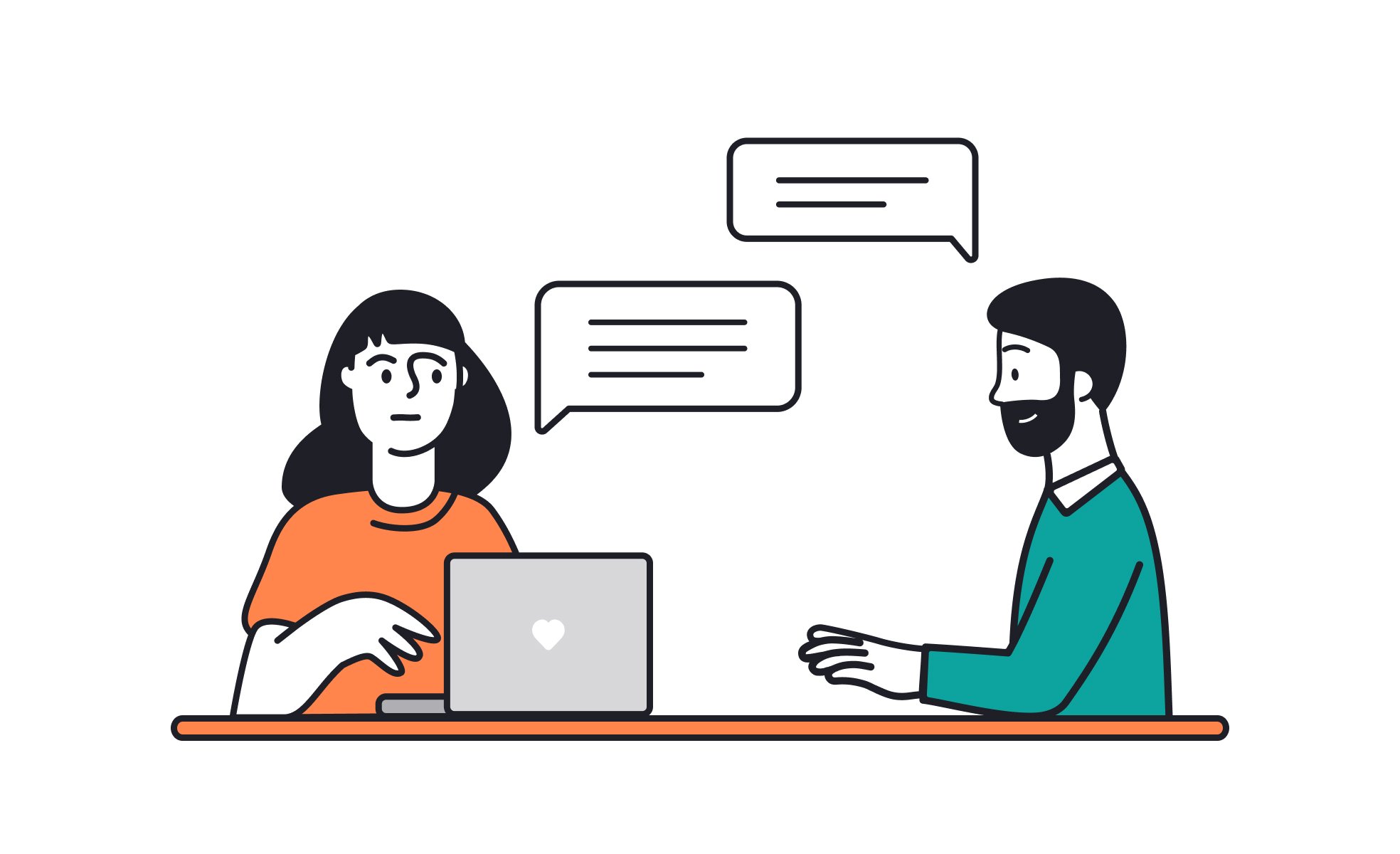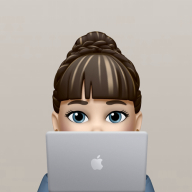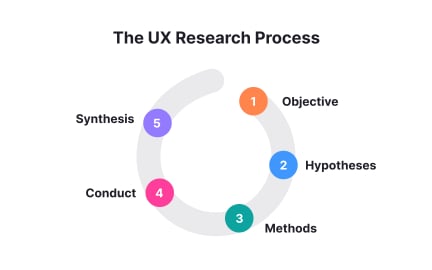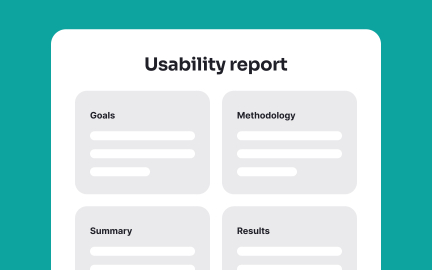User Interview
A user interview is a qualitative research method where researchers speak directly with users to gather insights about needs, behaviors, and product experiences

TL;DR
- One-on-one conversations with users.
- Provides insights into needs and motivations.
- Helps validate assumptions and guide design.
- Key tool in qualitative UX research.
Definition
A user interview is a structured or semi-structured conversation between a researcher and a participant, aimed at uncovering needs, goals, frustrations, and expectations related to a product or service.
Detailed Overview
User interviews are one of the most widely used methods in UX research because they allow teams to gather direct insights from the people who use or may use a product. Unlike surveys, which provide broad quantitative data, interviews reveal depth and context.
Researchers listen to stories, ask follow-up questions, and uncover motivations that might otherwise remain hidden.
A frequent question is why teams invest in interviews instead of relying on analytics. While analytics show what users do, they rarely explain why. An interview uncovers the reasoning behind choices, the emotions attached to experiences, and the hidden pain points that data alone cannot surface. For example, analytics may show drop-offs at a checkout page, but interviews reveal that users find shipping costs unclear.
Another common query is how interviews are structured. Formats vary from structured (with a set list of questions) to semi-structured (with flexibility to explore interesting responses). Semi-structured interviews are the most common in UX, as they balance consistency with the freedom to dig deeper when participants raise unexpected but valuable insights.
Teams also ask about sampling. Interview participants should represent target users or different segments of the audience. Diversity is important; interviewing a mix of experienced and new users, or users with different accessibility needs, ensures a broader perspective. Researchers typically conduct five to ten interviews per segment to identify recurring themes without being overwhelmed by data.
Another topic is how findings are used. Interview insights are often synthesized into personas, journey maps, or design requirements. They help teams validate assumptions, prioritize features, and refine workflows. Sharing direct quotes and stories from interviews can also make user needs more tangible for stakeholders, building empathy within the organization.
Learn more about this in the User Interviews Exercise, taken from the Design Processes & Research Methods Lesson, a part of the UX Design Foundations Course.
Surveys gather quantitative data from large groups, while interviews provide qualitative depth. Interviews reveal motivations, frustrations, and detailed stories that surveys often miss.
Together, they complement each other by combining breadth with depth.
Most teams aim for five to ten interviews per user segment. This is often enough to reveal patterns without being repetitive.
The goal is not statistical accuracy but uncovering recurring themes that guide design.
Good questions are open-ended and focused on experiences, not assumptions. For example, “Tell me about the last time you used this feature” is more effective than “Do you like this feature?”
Open-ended questions invite stories and richer detail.
They are useful throughout: early-stage to define problems, mid-stage to test prototypes, and post-launch to gather feedback.
Using interviews across stages ensures user voices guide continuous improvement.
Findings are often summarized into personas, journey maps, or insights decks. Direct quotes can be especially powerful in helping stakeholders empathize with users.
Clear communication ensures insights translate into actionable design decisions.
Recommended resources
Courses

UX Research

Color Psychology

UX Writing
Lessons

UX Design Processes & Research Methods

Organizing UX Research

Conducting User Interviews for UX Research
Projects

User Personas for LinkedIn

FoodNation - Food Delivery App Design | UI/UX Design













